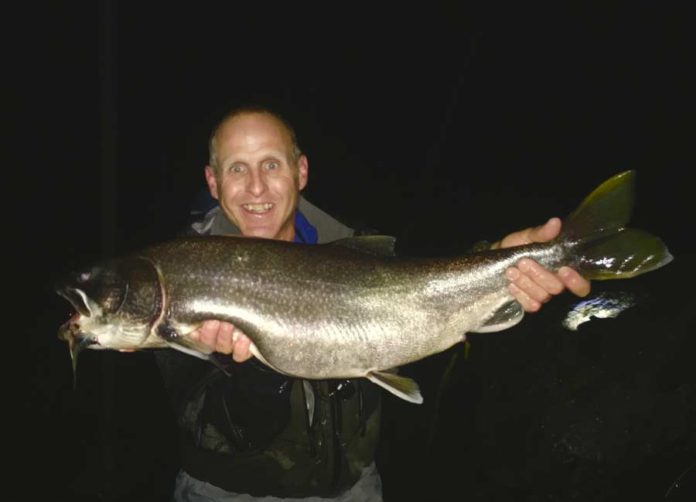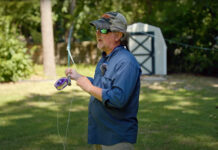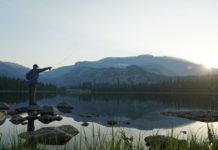Written by: Drew Price
There is an old adage in angling that “ten percent of the fishermen catch ninety percent of the fish.” While the numbers aren’t that important, there are people who are super fishy and catch more than others. What are the things that they do differently, and how do you join the ranks of the elite? Read on for tips and tricks to help up your game!
I work at a middle school. Most kids don’t like doing their homework, and it becomes pretty obvious when grades come out who is doing their homework consistently. For fly fishers, homework is a big part of the equation, too. I know: it sounds kind of weird, but it’s true. While fishing homework might sound boring to some, I think it is a fun and exciting activity to engage in when you aren’t able to get on the water.
When you are interested in new techniques, new species to fish for, or new areas to fish, what is your starting point? Time for some research (the more grown up way of saying homework). I know that when I am interested in any of these things, I go into a voracious learning mode. My mind goes immediately to books, internet research, and talking to people about what I am interested in. I start putting in the time that it takes to find out what I need to know about the area, the species, or the technique I want to know more about.

Books
There are so many great written works out there to get you thinking about how to up your game. After 25 years of fly fishing, I have built up quite a library of books. I revisit them frequently to help me improve my game or decipher a situation that I have encountered. That kind of introspection will make a huge difference in the long run.
One of the books that is my springtime go-to is Prospecting for Trout (both editions actually). Tom Rosenbauer taught me how to fly-fish for trout through this book. A few years ago, I told him that I keep that book as reading material in the bathroom every spring to help me get ready for the start of the season. His response was “Drew, I think you need to get a life.” I got a good chuckle at that, and maybe he has a point, but that book has made me a much better angler.
Case in point: this spring I fished the Battenkill for the first time. I was looking at a slick next to a root wad along the bank. Having pored over Prospecting so many times, I knew exactly what to do. I put on a good sized Bugger and dead-drifted it through the slick. On the second pass, I thought I had snagged the bottom for a second, but quickly realized I had a good fish on. Within five minutes or so, I landed my first good Battenkill brown. Half an hour later, I landed another with the same technique and missed a couple more throughout the morning.
It meant a lot to be able to catch trout on the Battenkill using a technique I learned from Tom’s book, when he had honed his trout fishing skills on that same river. I guess the bathroom reading has paid off.

Websites and Mapping Apps
These days, there are many great websites you can visit to find techniques, locations, or others to help you. Google Earth is one of the best scouting tools you can find, offering aerial views of rivers, lakes, and ponds. I also use the Navionics app–a great deal for lakes and ponds. It gives you access to what the bottom structure looks like before you get to the water and while you are fishing. Knowing where a drop-off or a submerged rock is can help you find the fish. Being able to do that research while at home can save you hours of scouting on the water. You end up spending less time poking around and more time fishing.
Conventional Anglers
One resource that a lot of fly anglers overlook is the wealth of information that conventional anglers have built up over the years. Fly rodders have only started targeting some of the bigger and more unusual species over the past 20 years or so. Gear-chuckers have been chasing these species a lot longer. Books and magazines devoted to conventional methods of fishing will help you with locations, patterns, and techniques that you can adapt to fly fishing. Information is information, and with fish such as pike, muskies, walleyes, and bass, there is far more written about using lures and bait than there is with flies. I have gleaned a great deal from gear guys.
In a similar vein, if you are targeting non-traditional species on the fly, bait-and-tackle shops are great resources. Go in, shoot the bull a bit, and make sure you buy some odds and ends. Supporting a local business is always a great thing. Those guys have been super helpful to me over the years. After I get to know them a bit, they are more than happy to share info, especially about real oddballs like carp, bowfin, gar, and the like. We may have different tactics and sometimes different ethics, but ultimately we are trying to do something similar. Sharing info and getting to know people will help you out in the long run. You might find a few new spots to fish that you had not considered before.

Biologists and Game Wardens
Other great resources are your state fisheries biologists and game wardens. They are in the know about what is going on and where to find fish. Shoot them an email or give them a call (keeping in mind that they are typically super busy people and don’t always have time to chat or reply quickly). They want people to catch fish and be successful, as that is part of their job. They can be a great way to find new places to fish or find out about a species you are interested in.
Being a fish geek myself I also find myself drawn to books and articles that are less about angling and more about the biology of the species I am interested in. Knowing more about the feeding habits, preferred temperatures, seasonal movements, spawning behavior, and the like is incredibly valuable information that is very relevant on the water. The more that you know about the fish you are angling for, the better the angler you will be. Sometimes the scientific articles you will find can be really challenging to digest or not even appear to be related to your interest. Look for the ones that are. Radio-telemetry studies are amazing when you find them, and dietary studies help you to know what flies to tie. That info is easily available if you look for it.
Getting your homework done for fly fishing isn’t going to give you good grades on your report card, but I guarantee it will help you get into more fish in the long run.
Drew Price lives in Northern Vermont and is the owner and operator of Drew Price Fly Fishing. He fishes Lake Champlain and surrounding waters targeting carp, pike, bowfin, gar, bass and other species (even the occasional trout). He’s also a former Trout Bum of the Week.
Credit: Source link































